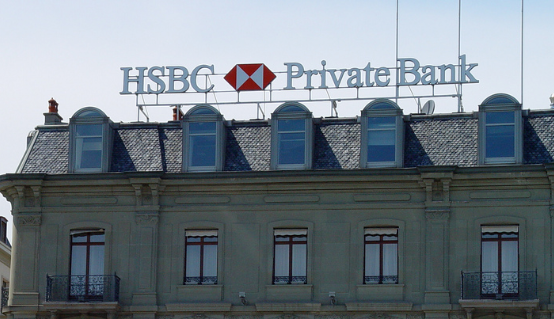In France, ombudsmen – the so-called “médiateurs and médiatrices” – have played an important role in media organizations. Their efficiency, however, depends on how they are perceived by others in their environment, both externally (among the public and social actors) and internally (among media professionals). Marc-François Bernier, professor of communication science and journalism at the University of Ottawa, Canada, conducted a study on the internal credibility and legitimacy of ombudsmen in the opinion of journalists at three French media organizations: the national daily Le Monde and public broadcast companies France 3 and Radio France Internationale (RFI). In his research, Bernier utilized an online questionnaire consisting of quantitative and a qualitative sections. Journalists working at the media outlets were asked to indicate their preference on a 7-point Likert scale, which allowed the participants to assign a numerical value to a particular statement, ranging from 1=strongly disagree to 7= strongly agree. “The manner in which an ombudsman is appointed can strongly influence the journalists’ perception of him or her,” says Bernier. While the journalists from Radio France Internationale disagreed with the questionnaire statement “The press mediator at my media organization was appointed in an objective manner by the owners or the managers,” the journalists from France 3 and Le Monde tended to agree with it. Bernier relays a particularly relevant incident at RFI which likely influenced the participants’ response: the organization’s ombudsman was dismissed after criticizing the Sarkozy government in a radio interview and the appointment of the ombudsman’s successor was regarded with mistrust by the journalists. One journalist critically noted that the newly appointed ombudsman did not come from the newsroom, but from management.
Bernier notes that the credibility of the ombudsmen is also largely based on the perception of neutrality or impartiality towards each of the journalists in the newsroom. However, this ideal was not found to be the case in the three analyzed newsrooms. The journalists from RFI and Le Monde appeared to be quite neutral to the statement “The ombudsman at my media organization does not view all journalists equally, some are favored and protected”; while the journalists from France 3 rather disagreed with the statement. Many media organizations have been accused of employing ombudsmen only for their images. Some of the interviewed journalists shared this view. The journalists from RFI were the ones who agreed most with the statement “In general, ombudsmen are there only to promote a positive image of news organizations,” followed by the journalists from France 3. The journalists from Le Monde were more neutral to the statement. “There is a tendency for ombudsmen to mainly promote a positive image of the respective news organization,” said one RFI journalist. Another put it even more drastically, saying, “Ombudsmen are an essential part of the image maintenance policy. I do not believe at all that they are genuinely objective.” At France 3, the comments regarding the tasks of an ombudsman were more positive. One journalist noted that ombudsmen “indeed contribute to a company’s positive image but their main function is to make the public understand the complexity of some of the problems.” One journalist from Le Monde strongly disagreed with the statement that the ombudsmen’s main purpose is to convey a positive image of the media company, asserting, “Not at my newspaper, in any case.” His colleagues, however, emphasized that while mediation is the principal function, ombudsmen inevitably serve to portray a positive image as well. One journalist said ombudsmen do not only improve the image of the respective media company, but of the entire media industry, which is “in need of improvement.”
Though most journalists tended to agree with the statement “Having an ombudsman is a demonstration that our media organization takes its social responsibilities seriously” (4.5 points on the Likert scale), many commented on the statement fairly critically. The journalists from RFI were of the opinion that the position of an ombudsman is “a trend” and set up “only for appearances.” A journalist from France 3 emphasized, “it’s not just because we have a mediator that we take our social responsibilities seriously.” However, most journalists from the three analyzed media outlets agreed with the statement, “All news media should have an ombudsman position,” with journalists from RFI comprising the strongest supporters. While some regarded the position of an ombudsman as “indispensable,” others emphasized that an ombudsman is “useful only to a certain extent.” Some of the surveyed journalists highlighted the important role the ombudsman plays as a point of contact for the audience, hence, “The public cannot understand the difficulties involved in a journalist’s job, and an ombudsman is not useful in this context” was rejected by all journalists. The interviewees were of the opinion that an ombudsman “can actually help to reduce the ignorance” of certain audience members. “Our listeners will understand our work once it is explained to them properly,” reported one radio journalist. Yet the journalists did not seem eager to be ombudsmen themselves. Most rejected the statement, “I want to become an ombudsman one day,” with journalists from Le Monde disagreeing the most. “I’m not a masochist,” one Le Monde journalist commented. Another said, “I think it’s very tiresome,” and added that in his newsroom the position of an ombudsman is not compatible with other tasks, “I would not wish to stop writing articles – just the mediator’s column would not be enough for me.”
The journalists from France 3 displayed more interest. “Why not, if the role and functions are precisely defined,” said one journalist. Another said, “Yes, if the position had greater recognition and if ombudsmen were truly independent,” implying that this is not currently the case. Ombudsmen cost money – and the cost factor is one of the reasons the concept has not yet been regularly established in practice, according to the study. However, the interviewed journalists disagreed with the statement, “The funds set aside for ombudsmen might be better used for investigative journalism.” One journalist said, “That has nothing to do with it. Both are needed – ombudsmen and investigative journalism.”
A few journalists within the three analyzed newsrooms remain reluctant to warm to the concept of ombudsmen, however the majority are accepting. Bernier sums up the results of his survey suggesting the following improvements:
– It would benefit all concerned parties to adopt more open and transparent ombudsman appointment procedures
– The work of an ombudsman should have greater visibility among journalists and the public
– The ombudsman must be granted the highest degree of autonomy and independence possible
Many journalists within the three analyzed newsrooms refused to comment on the role of the ombudsmen with only 113 of the 1,052 journalists working in these newsrooms filling out the questionnaires. This is a return rate of 10.7 percent.
Bernier, Marc-François (2012): “The internal legitimacy and credibility of press mediators in three French media: Le Monde, France 3 and Radio-France International (RFI)”, Conference “Journalism ethics: Individual, institutional or cultural?” Reuters Institute for the Study of Journalism, University of Oxford, September 2012.
Article translated from the original German „Nur bis zu einem gewissen Grad nützlich“ by the author.
Photo credits: Luc Legay / Flickr CC
Tags: France, France 3, French Media, Le Monde, Newsroom Transparency, Ombudsmen, RFI














































